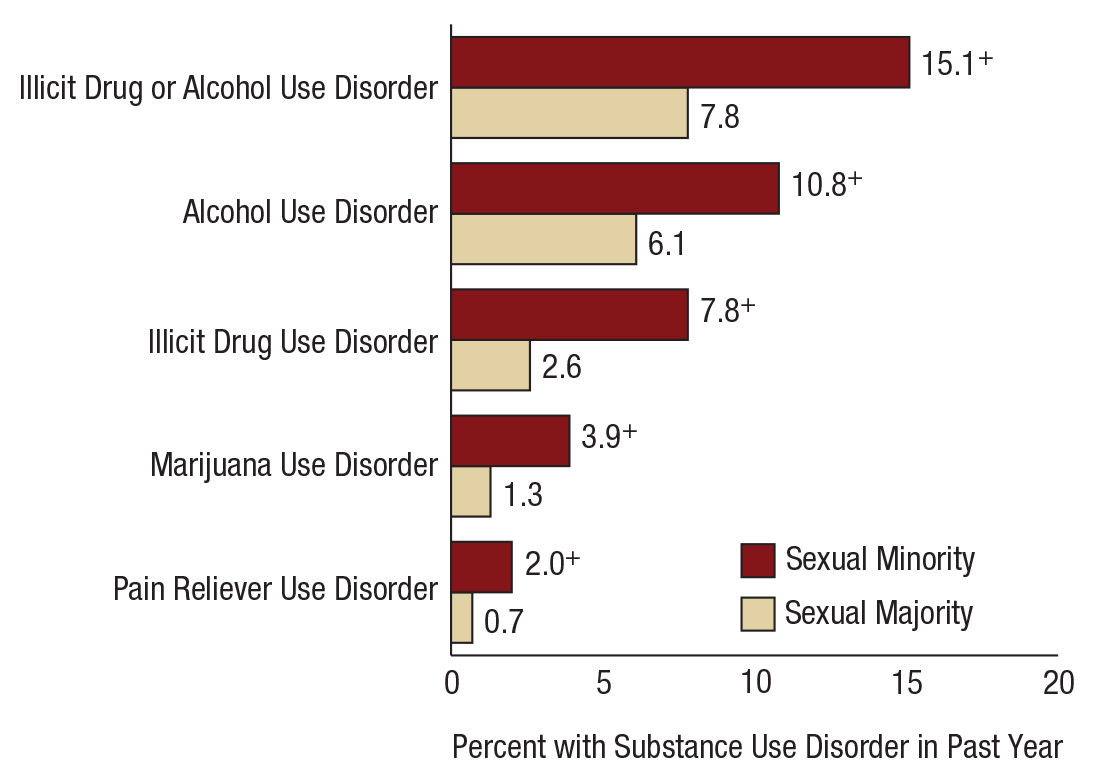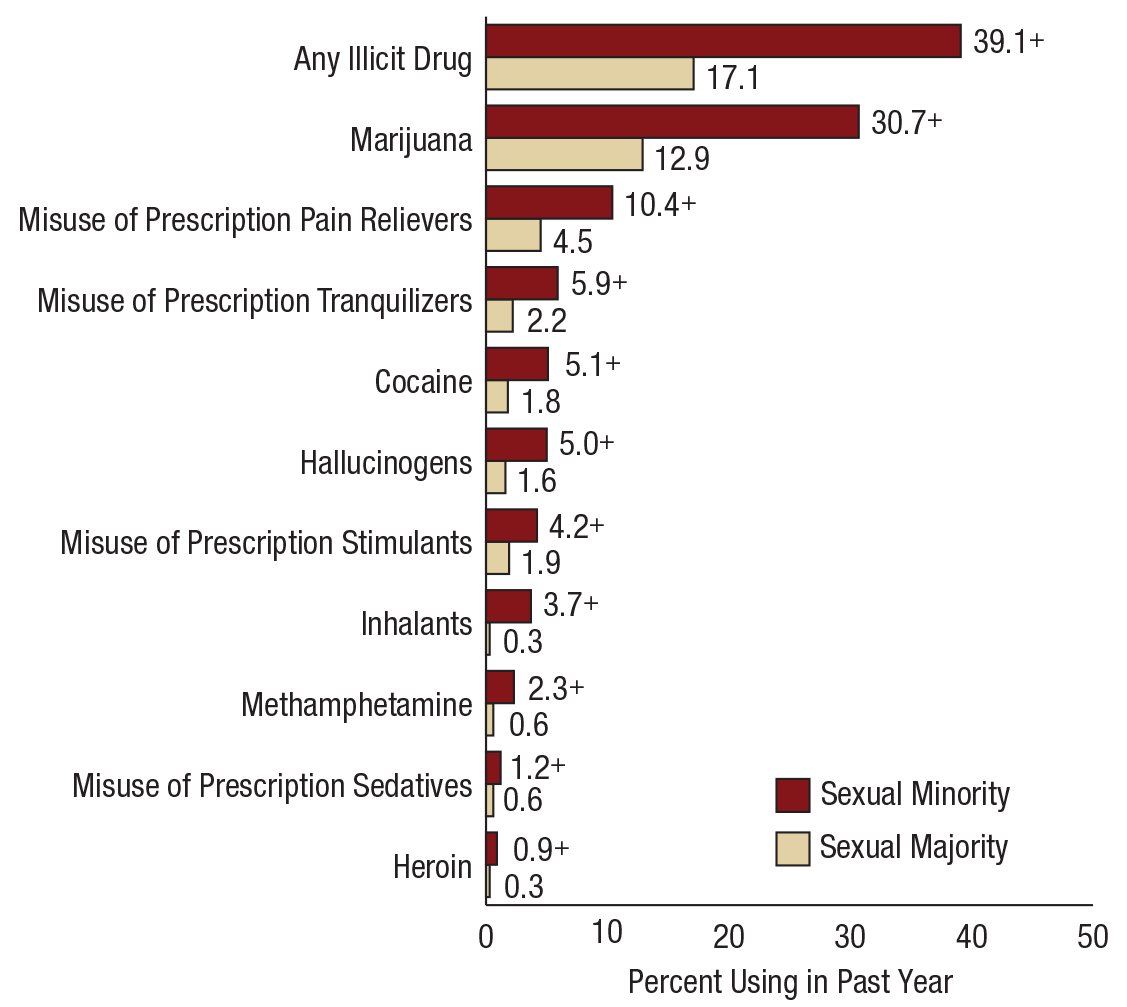Sexual minority groups have a higher risk of abusing substances than the sexual majority population, according to a new report from the Substance Abuse and Mental Health Services Administration (SAMHSA).
“It really is the first ever snapshot of what is happening in our nation,” said Chief of Populations Survey Branch at SAMHSA, Jonaki Bose.
The report, which was published in October compared results from the 2015 National Survey on Drug Use and Health (NSDUH) to results from three other national surveys and showed that gay, lesbian, and bisexual adults are much more likely than heterosexuals to abuse substances.
Bose explained that because questions on sexual orientation were added to the NSDUH survey for the first time in 2015, SAMHSA did not have a variable on identifying transgenders specifically, but the community is a part of the alarming numbers.
SAMHSA’s report provides substantial information and numeric evidence about a group that was never thoroughly observed before. The data is an important step and allows for social measures to be taken to address specific problems within the LGBT population.
“The first step is to say, what’s the substance use health profile for this population,” said Bose. “That’s what this report has done.”

SAMHSA’s Center for Behavioral Health Statistics and Quality will now send data from the report to a variety different departments within the agency as well as external stakeholders including policy makers, researchers, and Congress, so the information can be used as a programmatic resource.
“We don’t ask why individuals use substances,” said Bose. “We don’t have a way to access that, but we can look at correlates. So when we control demographic differences, do these differences in numbers still show up? What factors are they associated with?”
Social stressors increase risk of substance abuse
The topic of substance abuse among sexual minorities often begs the question of whether social stressors are a risk factor.
According to Dr. Lawrence Mayer, a statistician from Arizona State University, and Dr. Paul McHugh, a former psychiatrist at John Hopkins University, sexual orientation, and gender identity are not biologically fixed.
Mayer and McHugh wrote a 143-page report, recently published by the New Atlantis, in which they concluded that… (continue reading)

















